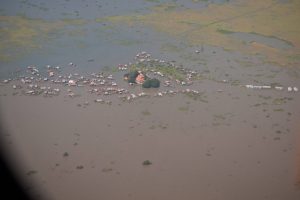No products in the cart.
Protection of man
An ethical perspective on social human rights
 This analysis of social international and European human rights is understood as a sub-project of an extensive socio-ethical investigation into the future of social security in Europe. According to the project plan, this investigation takes place in three stages.
This analysis of social international and European human rights is understood as a sub-project of an extensive socio-ethical investigation into the future of social security in Europe. According to the project plan, this investigation takes place in three stages.
- Stage: Clarification of the fundamental claims of citizens in the context of human rights ethics.
- Stage: Clarification of the ethical requirements of social justice ethics.
- Stage: Clarification of participation and equality of ability as ethics of social development. This step-like criteriology of an ideal welfare state serves as a template for the socio-ethical evaluation of existing reform proposals for social security in Europe.
The ethical perspective taken here on human rights in the sense of the first stage tries to emphasize fundamental (justice) conventions that are formulated in human rights as normative claims. However, this also means that ethics does not claim any competences that are ultimately peculiar to the legal interpretation. Human rights serve here only as a source of well-considered belief.
1 They are a step on the way to a “broad equilibrium of thought that has to be established between our convictions, intuitions and conventions about fair conditions in the German welfare state. As a fundamental ethical claim, human rights have an inevitable standardization strength. As basic norms of ethics, human rights emphasize the status of the freedom of the person. “Ultimately, this status of freedom is the subject of transcendental exchange or the universal-reciprocal.

Flood disasters pose a serious threat to people: it is more and more common that water levels on coasts and rivers are significantly exceeded and parts of the country are flooded. Since many bodies of water are surrounded by cultivated landscapes and cities, large floods often claim many lives and destroy the livelihoods of thousands of people.
Malteser International supports those affected with rapid emergency aid during the flood, with the reconstruction of the destroyed infrastructure and with disaster risk management, for example by preparing people for recurring floods through preventive training and by practicing how to behave in an emergency.
The risk of flood disasters increases as a result of climate change, such as increased rainfall or snowmelt. In addition, flood disasters can often be traced back to human intervention in the natural course of rivers, for example by straightening or damming the water.
1 SIGNATURES
AND COUNTING +++
-
Drago Janjušić
Croatia (hrvatska)Signed
SIGN THE PETITION
Your valuable sign will help the decision makers to make wise decision on this topics.



